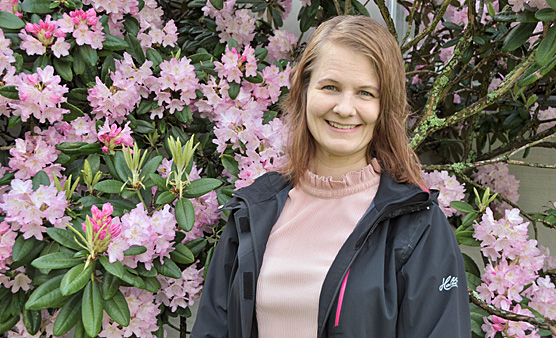
Tuuli Myllymaa © Hannele Ahponen / SYKE
The European Commission launched the European Green Deal, a green development programme and roadmap, at the beginning of the year. Its mission is to pave the way for sustainable growth and towards climate neutrality in the member states and Europe as a whole by 2050. The roadmap emphasises that a transition to a total circular economy is a precondition for achieving climate goals, protecting natural environments and maintaining economic competitiveness.
Progress towards a climate-neutral circular economy has been packaged into a Circular Economy Action Plan. Expectations of the circular economy have already begun to become synonymous with environmental policy for sustainable development, with the goal of ecological, economic and social sustainability. The new Action Plan reinforces this setting by linking biodiversity to the impact chains of the circular economy.
According to the background studies of the Circular Economy Action Plan, half of all greenhouse gas emissions and more than 90 per cent of biodiversity loss and water stress are caused by the recovery and processing of natural resources. These startling figures show that at the negotiating tables for circular economy measures, a very broad vision should be represented. The circular economy can reduce the pressure on natural resources and thus help to halt the loss of biodiversity.
The Circular Economy Action Plan has also been brought closer to the people: citizens, as consumers, want to be guaranteed better rights and opportunities to choose sustainable solutions, and even social justice of change is emphasised. The involvement and commitment of all stakeholders is described as crucial. Hopefully, the growing consideration of social factors will increase the potential of the circular economy. New approaches can only be mainstreamed if they are generally acceptable, while at the same time, we must be prepared to identify and compensate for possible experienced injustices and losses.
I believe that right now we are even more ready for change and commitment. We live in exceptional times as almost everything familiar and safe has become uncertain and foreign. Preventing the spread of the coronavirus has cost jobs and led us far from our loved ones and also far from many of our everyday habits that previously defined a functioning society.
In the middle of all this concern and uncertainty, it has been heartwarming to note that a record number of people have found their way to nature trails and national parks. In the midst of the crisis, nature has brought much-needed peace and prosperity.
Many have speculated that new habits will remain in place after the corona crisis. I wish we would retain the courage to try something new, to be able to maintain the new connections to nature we have now found, and to learn to appreciate our habitat and its natural resources. And that we would remember the relationships between the circular economy and natural environment. When products are used for as long as possible and raw materials circulate efficiently, we can enjoy nature trails, trees and forests, little bugs, birds, cliffs, beautiful scenery, the peace and space to breathe and think.
Let us, therefore, set a common goal of a climate-neutral and nature-wise circular economy. In anticipation of meeting close relatives, co-workers and cooperation networks, and other normal conditions, many thanks to my hometown of Espoo for all the wonderful hiking trails and scenery that have been saved for all of us to enjoy.
Tuuli Myllymaa, Project Manager, Head of Unit, Circwaste project, Finnish Environment Institute SYKE